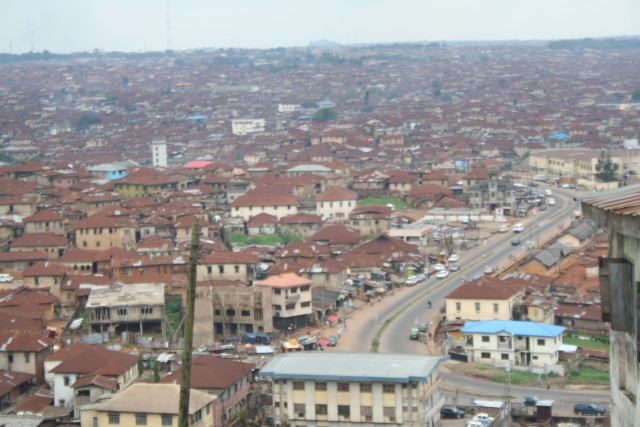Ibadan
Ibadan, the second largest city in NIGERIA, is located on a group of seven hills in the southwestern part of the country. The city began as a military camp about 1829, and it grew into the most powerful town of the YORUBA people. Unlike other Yoruba settlements, Ibadan had an open society where advancement depended on talent rather than birth. This open system attracted many people with various skills, including some with administrative ability and military experience. By 1855 the leaders of Ibadan ruled over most of Yorubaland.
The British gained control of Ibadan in 1893. They built railroads linking the city with other Nigerian towns as well as an airport. The transportation network has helped to make Ibadan a commercial center.
Household goods, crafts, and agricultural products are sold at market squares throughout the old section of the city. Local businesses include furniture making, printing, and leather working. The city's artisans practice a variety of crafts such as weaving and tie-dyeing cloth, bead making, pottery making, and metalworking. Many residents are farmers who go to their farms outside the city every day. Ibadan is considered the intellectual center of Nigeria. Its university, established in 1948, was the first in the country and is respected worldwide. (See also Crafts, Lagos.)
